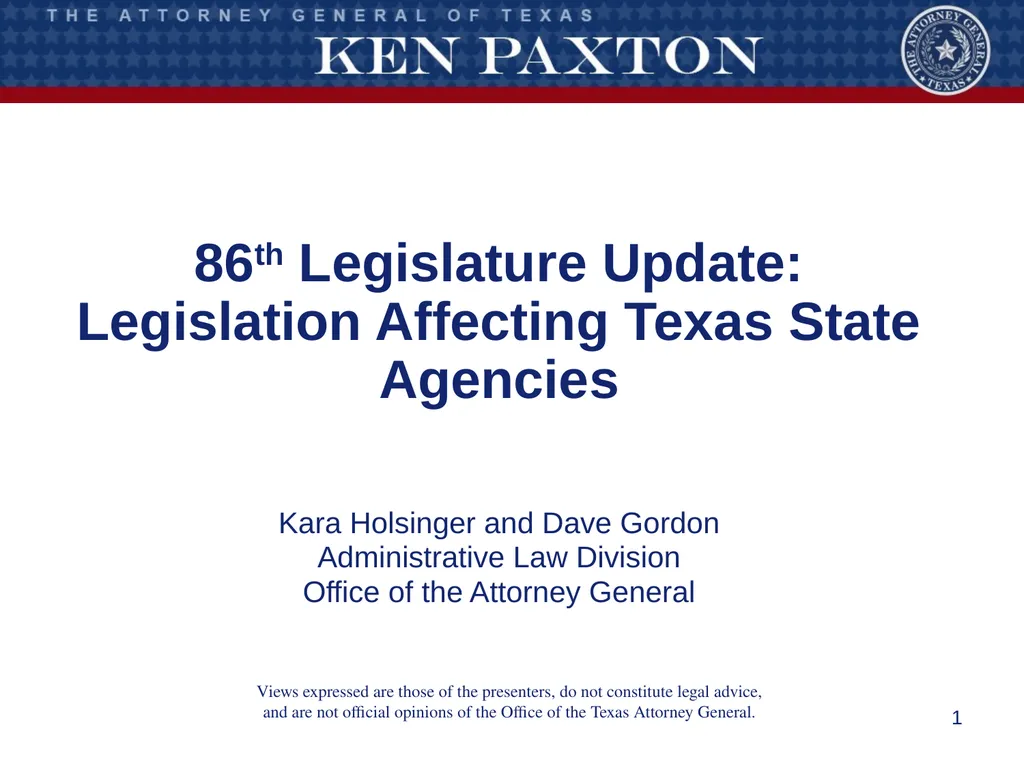
Author : stefany-barnette | Published Date : 2025-11-07
Description: 86th Legislature Update: Legislation Affecting Texas State Agencies Kara Holsinger and Dave Gordon Administrative Law Division Office of the Attorney General Views expressed are those of the presenters, do not constitute legal advice, andDownload Presentation The PPT/PDF document "" is the property of its rightful owner. Permission is granted to download and print the materials on this website for personal, non-commercial use only, and to display it on your personal computer provided you do not modify the materials and that you retain all copyright notices contained in the materials. By downloading content from our website, you accept the terms of this agreement.
Here is the link to download the presentation.
"86th Legislature Update: Legislation Affecting"The content belongs to its owner. You may download and print it for personal use, without modification, and keep all copyright notices. By downloading, you agree to these terms.













